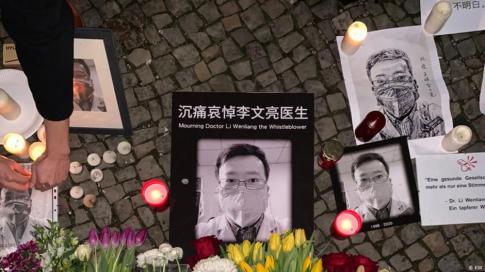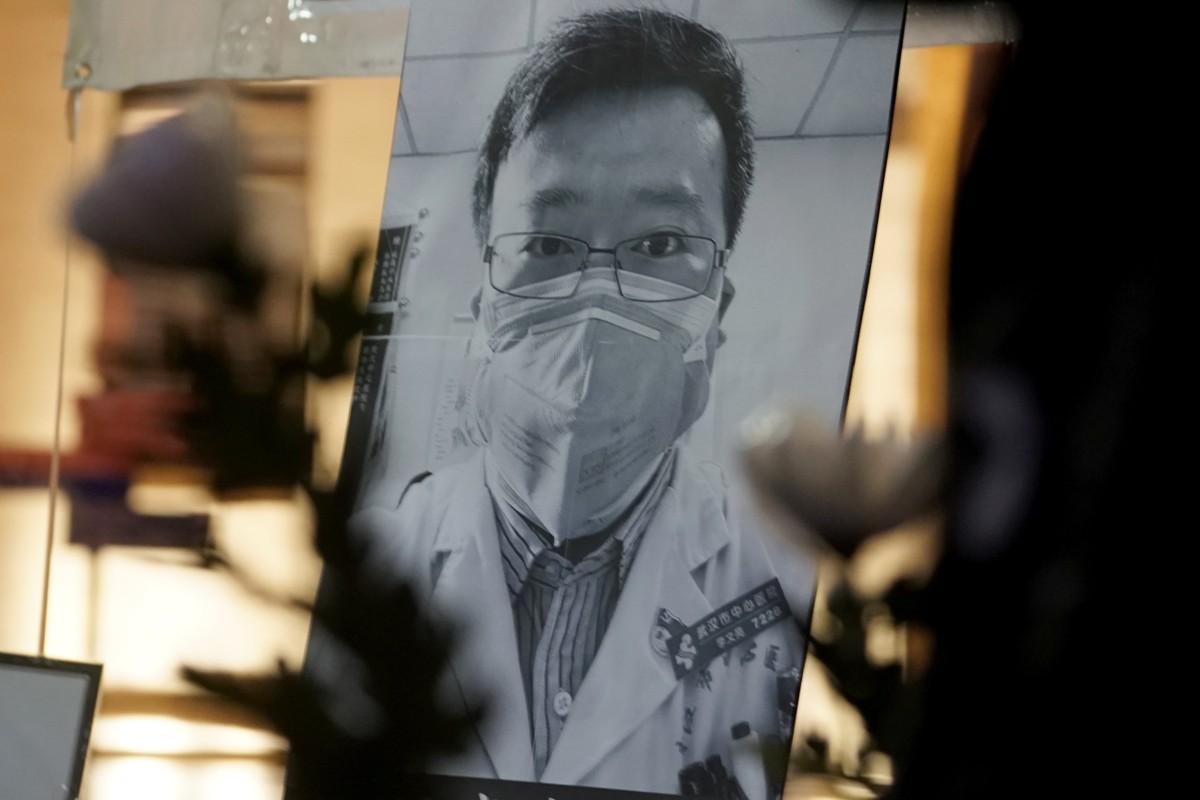The death of coronavirus whistle-blower doctor Li Wenliang has prompted calls for greater freedom of expression in China. Photo: AP
A virus causing severe lung disease that started in China has spread to other countries, including the UK.
The coronavirus had infected 63,922 people in China as of 14 February, with 1,381 of them dying.
What are the symptoms?
It seems to start with a fever, followed by a dry cough.
After a week, it leads to shortness of breath and some patients require hospital treatment. Notably, the infection rarely seems to cause a runny nose or sneezing.
Infographic showing the symptoms of the coronavirus
The incubation period - between infection and showing any symptoms - lasts up to 14 days, according to the World Health Organization (WHO).
But some researchers say it may be as long as 24 days.
And Chinese scientists say some people may be infectious even before their symptoms appear.
How deadly is the coronavirus?
Based on data from 17,000 patients with this coronavirus, the WHO says:
82% develop mild symptoms
15% develop severe symptoms
3% become critically ill
The proportion dying from the disease, which has been named Covid-19, appears low (between 1% and 2%) - but the figures are unreliable.
Thousands are still being treated but may go on to die - so the death rate could be higher.
But it is also unclear how many mild cases remain unreported - so the death rate could also be lower.
To put this it into context, about one billion people catch influenza every year, with between 290,000 and 650,000 deaths. The severity of flu changes every year.
Can coronavirus be treated or cured?
Right now, treatment relies on the basics - keeping the patient's body going, including breathing support, until their immune system can fight off the virus.
However, the work to develop a vaccine is under way and it is hoped there will be human trials before the end of the year.
Hospitals are also testing anti-viral drugs to see if they have an impact.
How can I protect myself?
The WHO says:
Wash your hands - soap or hand gel can kill the virus
Cover your mouth and nose when coughing or sneezing - ideally with a tissue - and wash your hands afterwards, to prevent the virus spreading
Avoid touching your eyes, nose and mouth - if your hands touch a surface contaminated by the virus, this could transfer it into your body
Don't get too close to people coughing, sneezing or with a fever - they can propel small droplets containing the virus into the air - ideally, keep 1m (3ft) away.






 del.icio.us
del.icio.us Digg
Digg

Post your comment